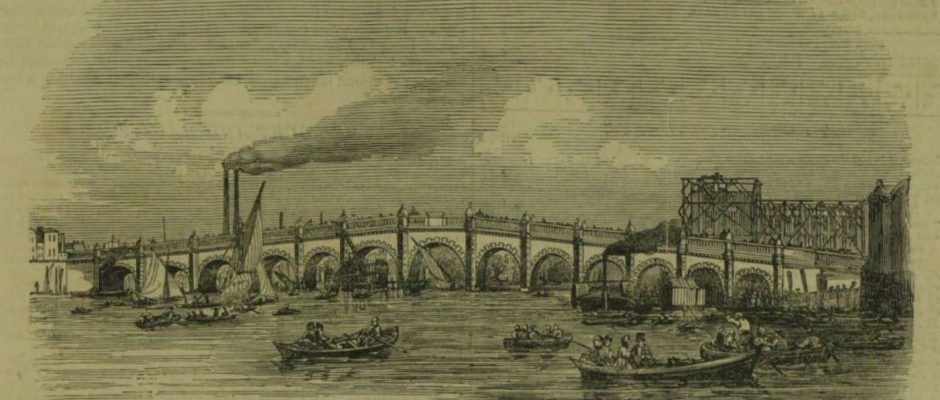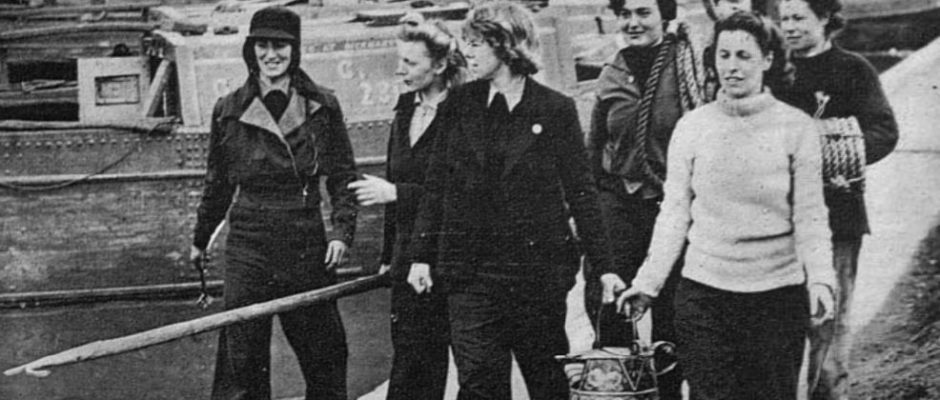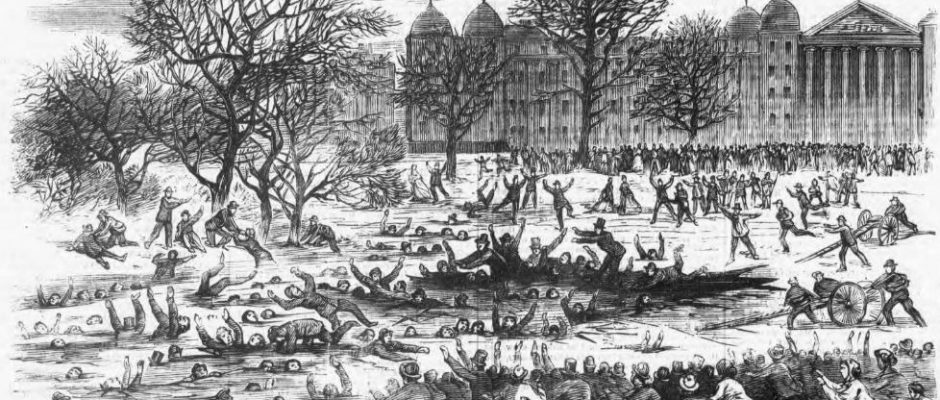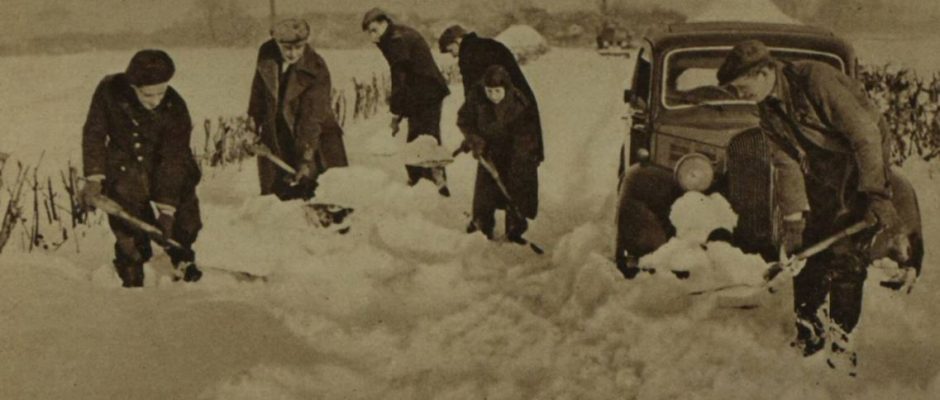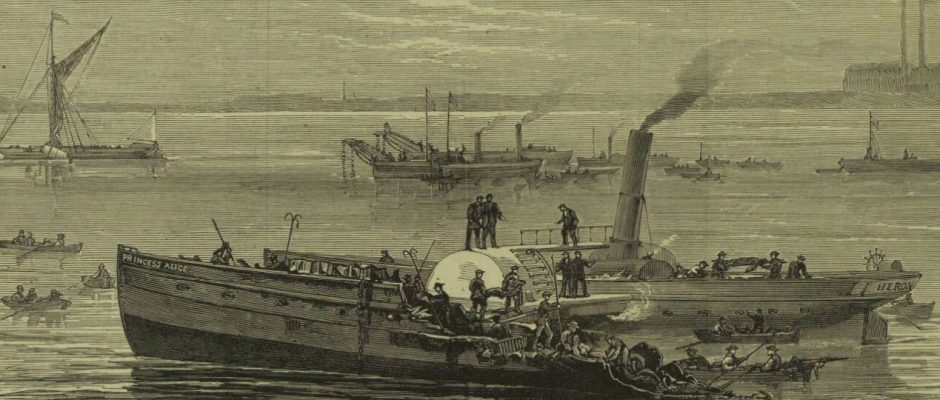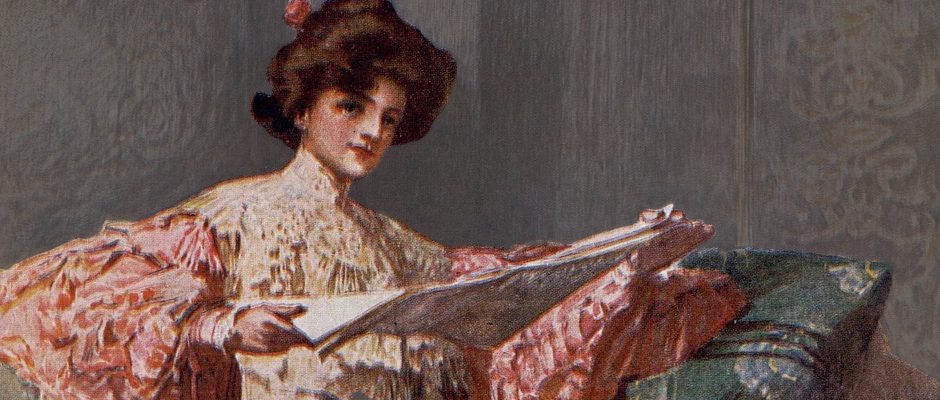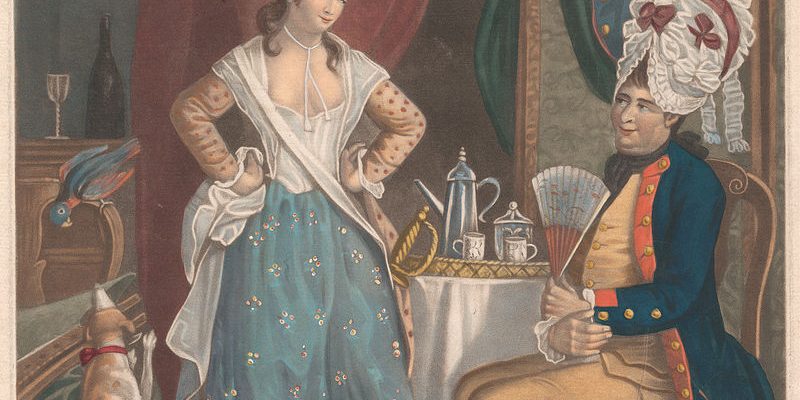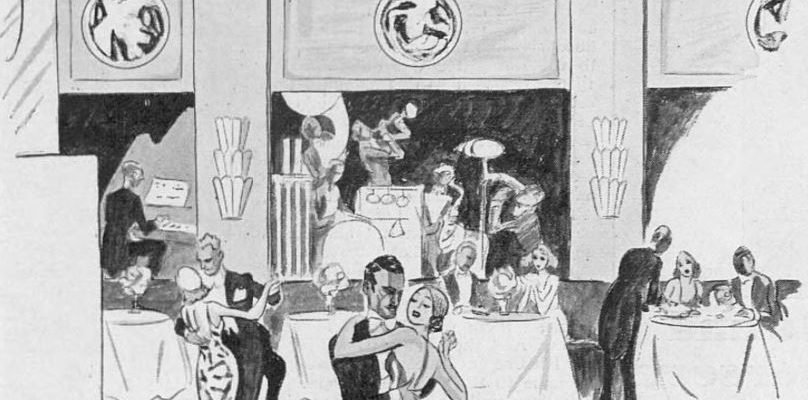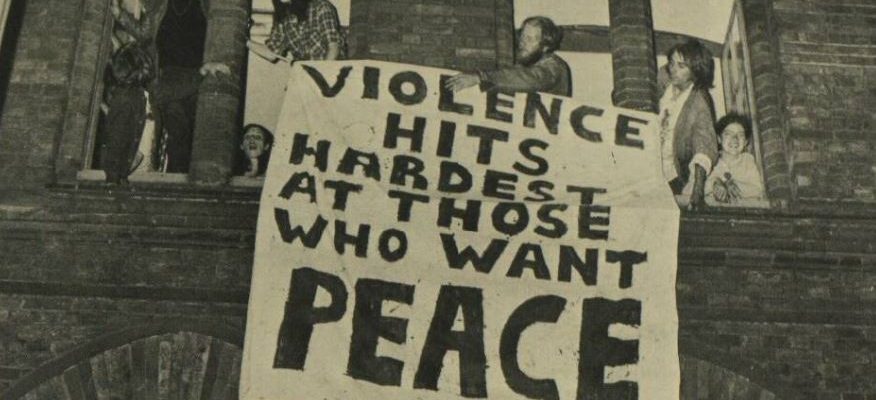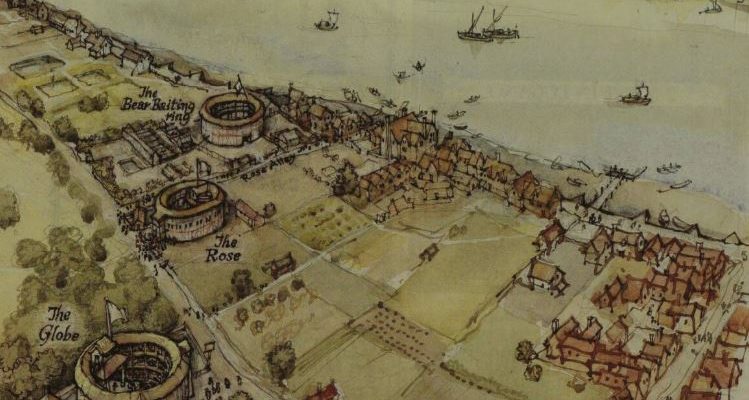‘The foulest nuisance that ever disgraced the annals of a nation,’ the condition of the Thames in the summer of 1858 had reached a crisis point. Bloated with sewage and other effluence from the world’s second largest city, the Thames had become a ‘pestilential stream,’ emitting a putrid odour that was dubbed the ‘Great Stink.’ Westminster Bridge | Illustrated London News | 21 October 1843 In this special blog, we shall uncover the true state of the Thames, as it was in the …
London
Nicknamed the ‘Idle Women,’ although they were about as far from idle as anybody could possibly be, the women canal workers of the Second World War performed vital war work which is all but forgotten today, some seventy years later. Some of the ‘Idle women’ arriving at a canal dock | The Sphere | 15 April 1944 The curious name of ‘Idle Women’ came from the badges that these pioneering women wore, with the initials ‘IW,’ which stood for ‘Inland Waterways’. …
Tags
On 16 January 1867 Regent’s Park in London was witness to the worst ice-skating tragedy in British history. In this special blog post, we take a look at how the newspapers in our Archive can help us understand exactly what happened that day, by hearing from the voices of those who were caught up in the catastrophe. In the Luton Times & Advertiser, 19 January 1867, the following is described: At about a quarter-past four, when a large number of …
Tags
Nowadays, a single snowflake is enough to send the country into a panic, but in the nineteenth and twentieth centuries Britain faced freezing weather that brought with it extreme snowfall to all corners of the land. ‘A wintry scene in Kent’ | Illustrated London News | 8 February 1947 And so, using newspapers from our Archive, will we take a look at how such extreme snowfall impacted Britain, how it disrupted the nation’s communication system, from the early days of the mail …
Tags
‘Perhaps the most terrible catastrophe that ever occurred on the Thames took place last night,’ writes the Greenock Telegraph and Clyde Shipping Gazette on 4 September 1878, ‘when the saloon steamboat Princess Alice, with about eight hundred passengers, was run down by a passing screw-steamer.’ This tragic incident, representing the largest loss of life on Britain’s inland waterways, saw pleasure steamer the Princess Alice, laden with London day-trippers, cut almost in three as she collided with collier Bywell Castle. The Princess Alice and …
Tags
This week at The Archive we are thrilled to bring you 11 brand new titles and additions to 6 existing titles. We have added 19,712 new pages from regional titles across Scotland and England. Register now and explore the Archive Five of our new titles come to us from across Scotland including a newspaper from Scotland’s most northern point in the Atlantic Ocean, the Shetland Isles. The Shetland News The Shetland News was first published in 1855 and it …
Tags
June is Pride Month. At The Archive, we are delving into the newspapers and pulling out the breadth of LGBTQ history available. Register now and explore The Archive 18th Century Gay Subculture 18th century London was home to a flourishing gay subculture with Molly Houses at the centre of the social scene. ‘Molly’ was a slur used for effeminate, homosexual men and the term was adopted to describe the clubs, taverns, inns, or coffee houses where they met up …
Tags
For just over a month in the summer of 1934, the Caravan Club in Endell Street, Holborn, was ‘London’s Greatest Bohemian Rendezvous.’ A safe space for society’s outcasts, it was a temporary haven for London’s marginalised LGBTQ community, home to an eclectic mix of clientele, from cabaret performers to bright young things. But in the early morning of 25 August 1934, the music ended. London’s Caravan Club was raided by the Metropolitan Police, whilst both its owners and members faced …
Tags
In September 1969, 144 Piccadilly, a mansion in London’s fashionable West End, was taken over by a group of hippies who called themselves the London Street Commune. Over several days, the hippies barricaded themselves in the mansion, and resisted attempts to remove them, in what became known as the Battle of Piccadilly. Hippies occupy Endell Street School, Holborn | Illustrated London News | 4 October 1969 In this special blog, we look at how the newspapers of the time reported on this …
Tags
As Britannia & Eve relates, ‘In 1586 a young genius of twenty-two, already the father of twins, packed his bags, said good-bye to the fading charms of his older wife, and quitted his home in Stratford-upon-Avon to earn his living in London as an actor.’ This young genius was of course none other than William Shakespeare, about whose life precious little is known. But we do know that it was to London that the bard went, Dick Whittington-like, to pursue …


